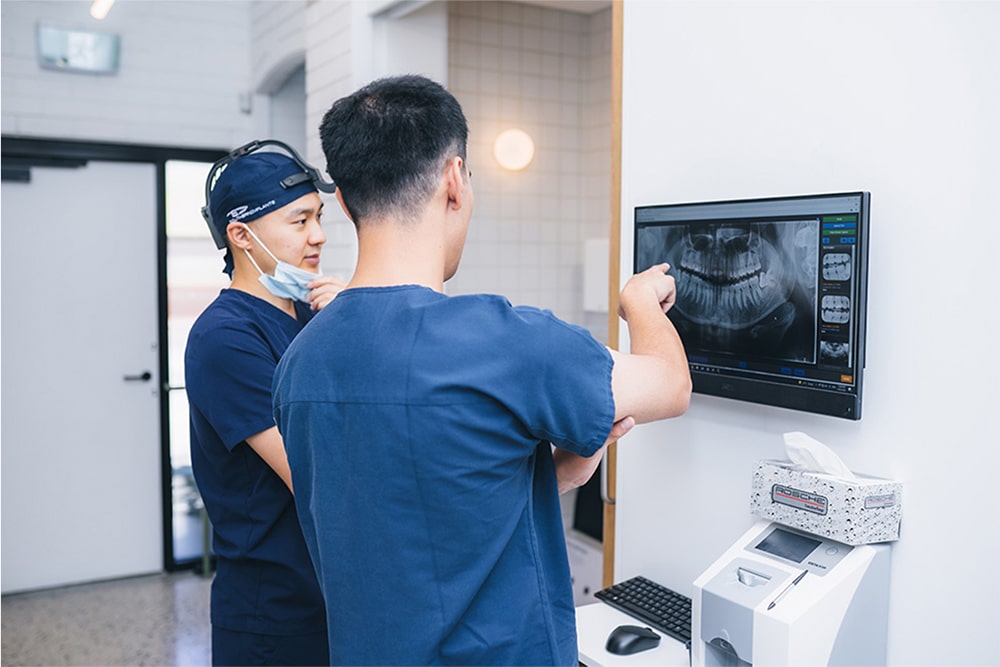Root Canal Perth Cost | Affordable Treatment WA
Root Canal Perth Cost


Got a Toothache?
A root canal procedure in Mindarie Ellenbrook South Perth or Belmont is a phone call away.
A toothache can indicate an infection in the soft tissue at the centre of your tooth, known as the dental pulp. If the dental pulp has been damaged by bacterial infection or trauma, it can start to die and you could potentially lose the tooth if it is not addressed at an earlier stage.
Although My Implant Dentist provides affordable dental implants in Mindarie Ellenbrook South Perth Belmont, we always try to save a tooth if we can. Discuss your options with one of our experienced dentists.
How Do I Know if I Need a Root Canal?
Deep decay, trauma, gum disease, and enamel wear are just a few of the reasons you may need a root canal. Symptoms you may be experiencing at home range from prolonged sensitivity to hot or cold, tenderness when biting, dull aching pain, or a pressure feeling. Although, sometimes an asymptomatic tooth may need root canal therapy.
Along with a clinical examination, a dentist can see by your x-rays if the dental pulp has been damaged by bacteria and a simple filling won’t fix the problem.
Your dentist will advise if a root canal treatment is your best solution, and will outline the treatment designed to save your tooth. This will generally involve removing the bacteria and sealing the tooth with a filling or a crown.
Despite its reputation, a root canal isn’t always painful, though local anaesthetic is normally used to make it more comfortable.


What is Involved in a Root Canal Therapy?
A root canal procedure is usually performed over 2 to 3 appointments, depending on how many root canals the tooth has, or the degree of the tooth’s infection.
The first appointment involves accessing the root canal system through an opening into the tooth and removing the infected dental pulp. The root canal system is then cleaned and washed to remove any residual infection that may be hiding within the walls of the tooth. Finally, an anti-inflammatory and antibiotic paste is placed into the prepared canal and the tooth is left to heal.
The second appointment involves placing a filling into the root canal system to seal the tooth from becoming reinfected. The tooth will then subsequently be restored. Your dentist will let you know what type of restoration is best for your root canal treated tooth. This may vary from a simple filling to having a crown placed on it. You can enjoy up to 24 months interest-free, depending on the treatment you require.
How Much Does Root Canal Perth Cost?
The cost of root canal therapy in Perth will depend on several factors and vary from practitioner to practitioner. The root canal is still one of the lengthiest and costly procedures. According to the national dental fee survey, the cost ranges between $750 and $1,500. If you have a tooth extracted, you will need to install a replacement. Otherwise, your teeth will move out of alignment causing more trouble than you have now. Even though $750 to $1,500 sounds expensive, extraction and replacement might be much more expensive. In many cases the root canal is the cheapest, quickest and least-hassle option, with the best possible outcome in terms of preserving a healthy, functioning mouth.

Book Your Free Dental Implant Consultation.



